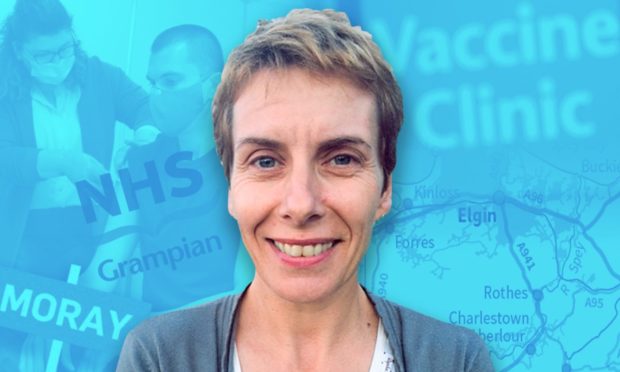NHS Grampian’s head of health intelligence has said it is “too early” to determine the impact of Omicron in Scotland – but insights from South Africa “gives her hope”.
Cases of the new coronavirus variant have been quickly increasing over the past couple weeks with the first minister expected to announce further restrictions to curb the spread.
Speaking on BBC’s Good Morning Scotland, Jillian Evans said cases across the country had been stabilising and hospital admissions reducing over recent weeks.
However, the new Omicron variant appears to be a threat to this.
When asked about the impact it is having in Scotland, she said: “It’s actually too early, but the numbers change all the time.
“The case numbers yesterday weren’t as high as lots of people were expecting and that could just be a lag in data, it often happens on a Monday.
“What we’ve been seeing is a stabilisation of case numbers because of Delta. The Delta variant has been seeking out all of those people who are unvaccinated and infecting them.
“And, those numbers have been becoming smaller and we’ve been seeing a reduction lately in hospital admissions. The booster programme is having a tremendous success there, particularly on new admissions for older people.
“So the situation has been stabilising, or slightly approving, and then as we got towards the middle of last week, we started to see an uptick. Whether that could be down to the rise in Omicron, I couldn’t say that at the moment. But that’s what to watch now.
Preventing worst case scenarios
The Omicron variant is already having an effect on the way “we live our lives”, according to the head of health intelligence.
She referenced the cancellations to Scotrail services due to staff isolating and the news that the Premier League has been badly affected by the new variant already.
Although the new variant is not currently having an effect on staffing levels in hospitals, this is something Ms Evans expects to be happening “fairly soon”.
She also said the expected “exponential growth” of cases being discussed may not be evident yet.
“I think the case numbers this week will be very telling. I’d expect them to be picking up from now,” she added.
However, she did suggest that the “worst case scenarios” being laid out could be avoided to some extent.
She said: “Are these likely to happen? I’d think not. Partly because new information will come to light to adjust our assumptions, but also because we’ll do something to prevent it from happening.”
First Minister Nicola Sturgeon will give an update on the Covid situation in Scotland this afternoon.
She is expected to announce further restrictions, following Health Secretary Humza Yousaf’s comments yesterday that this would be “inevitable”.
Early insight is hopeful
Prime Minister Boris Johnson has urged the public to “set aside” the idea that Omicron is a milder variant.
Although, Ms Evans said more information and evidence is needed to establish this, she is hopeful after seeing early data from South Africa.
She said: “We hear a lot about the experiences and insights from South Africa and they’re really valuable, and they give you such hope, they really do.
“They give you such hope that the number of admissions for serious Covid illnesses is much lower than previous waves.
“But, of course, South Africa’s population is quite different from the UK, with lots of younger people, so you can’t directly compare the two.
“The other thing is that we may be afforded a level of protection because of high levels of natural immunity in our population. Again, that gives us some hope.”
